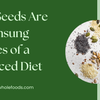Nutrition and Menopause: Key Strategies for a Healthy Transition
- by S R
Nutrition and Menopause: Key Strategies for a Healthy Transition
Menopause is a natural phase in a woman’s life, but the changes it brings—such as hot flashes, mood swings, and weight fluctuations—can feel anything but easy. While every woman’s experience is unique, nutrition plays a crucial role in supporting overall health and easing some of the challenges during this transition. Understanding how diet affects hormonal shifts can help you feel more balanced, energetic, and resilient.
1. Prioritise Calcium and Vitamin D
Bone density naturally declines after menopause due to lower oestrogen levels, increasing the risk of osteoporosis. Aim to include calcium-rich foods such as low-fat yogurt, fortified plant-based milks, tofu, leafy greens (like kale and bok choy), and almonds. Pair them with vitamin D sources like salmon, sardines, and eggs, or consider supplements if recommended by your healthcare provider.
2. Focus on Whole, Plant-Based Foods
Fruits, vegetables, legumes, and whole grains provide fiber, antioxidants, and phytoestrogens—plant compounds that may help balance hormone levels. For example:
Lentils and legumes: Excellent sources of plant-based protein and fiber, which support digestive health, keep you fuller for longer, and help regulate blood sugar.
Dried fruits: Options like dates, figs, apricots, and prunes are rich in iron, potassium, and antioxidants, supporting energy levels and bone health. Prunes, in particular, have been linked to maintaining bone density.
Whole-grain flours: Flours made from whole wheat, oats, chickpeas, or millet provide more fiber, B vitamins, and minerals than refined flours. They help stabilize blood sugar and support heart health.
These foods not only nourish the body but also contribute to long-term well-being by addressing common menopause-related concerns such as weight gain, fatigue, and bone loss.
3. Choose Healthy Fats
Healthy fats are vital for brain and heart health, both of which need extra care during and after menopause. Incorporate avocados, olive oil, walnuts, chia seeds, and fatty fish like mackerel or salmon. These sources of omega-3 fatty acids may help with mood stability and reduce inflammation.
4. Watch Portion Sizes and Added Sugars
Metabolism tends to slow during menopause, which can make weight management more challenging. Keep portions balanced and limit foods high in added sugar such as pastries, sodas, and processed snacks. Instead, opt for natural sources of sweetness like fresh fruit, dried figs, or a small piece of dark chocolate when cravings strike.
5. Stay Hydrated and Limit Caffeine/Alcohol
Hydration is key, especially if you experience hot flashes or night sweats. Water should be your main beverage, but you can also include herbal teas such as chamomile or peppermint. Reducing alcohol and caffeine intake may lessen sleep disruptions and hot flashes. If you enjoy coffee, try limiting it to one cup in the morning.
Conclusion
While menopause is an inevitable life stage, the right dietary choices can ease symptoms and protect your long-term health. Adding nutrient-rich foods like lentils for sustained energy, dried fruits for bone and heart support, and whole-grain flours for steady blood sugar can make a meaningful difference. Combined with calcium, healthy fats, and proper hydration, these small adjustments create a powerful foundation for thriving through menopause and beyond.





